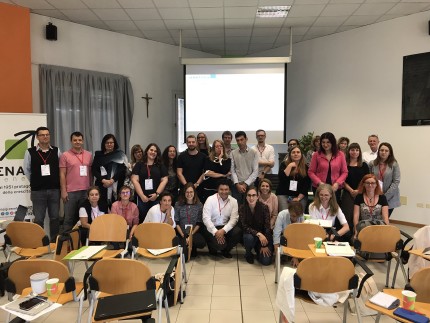The IN SITU project came to its end…
The project - IN SITU, having on board 12 partners from 6 countries in the Central European region, started its 3-year implementation in April 2019. Now it is completed.
The project IN SITU, having on board 12 partners from 6 countries in the Central European region, started its 3-year implementation in April 2019. During its lifetime, it created and promoted a tailored business development service and support scheme to foster the integration of disadvantaged groups, e.g. long-term unemployed young (<30) and 50+ people into the labor market through social innovation and new soc. enterprises. The enterprises were the result of specially developed training and mentoring programs (2x 6 months in each region).
The training programs have been implemented based on prior research and the creation of socially innovative tools and learning materials and during the two 6-mont training cycles, a total of 256 persons have been given an opportunity to explore and develop their own innovative idea and make it into a social business or initiative. At the end of the project’s lifetime, 105 original ideas were fully or almost fully developed and ready for the labor market, transforming the former long-term unemployed people into self-employed social entrepreneurs.

With all the data collected during the project’s existence, the project partners were able to produce multiple outputs and strategies, mapping the current situation, and its development and outlining various possible solutions, which will hopefully lead to even closer cooperation in regard to social entrepreneurship between central European countries.
